9 Best High-Protein Foods for Building Lean Muscle
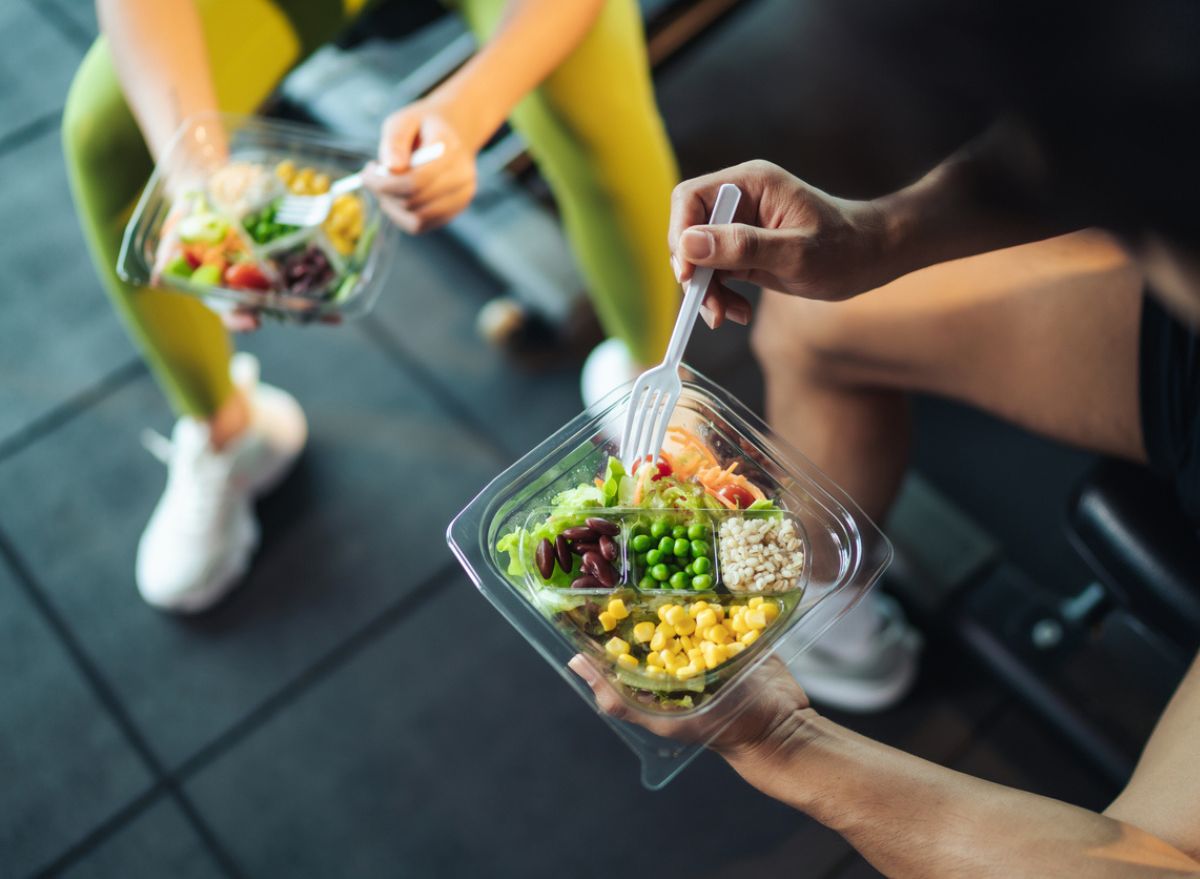
Building lean muscle is, of course, all about the time you put in at the gym. Breaking down your muscle tissue by lifting weights or performing high-intensity workouts allows it to rebuild even stronger. But if you're not fueling your weightlifting with the right foods, your body can't create the svelte, sculpted physique you're going for. It's critical to fill your plate with foods high in protein to achieve results.
To turn up the dial on your muscle-building efforts, try including these nine best foods. Not only are they loaded with protein, they're also minimally processed, so they won't add anything funky to your diet—though you can add flavor any way you like. And if weight loss is part of your fitness goal, don't miss our list of Best High-Protein Foods for Faster Metabolism!
Chicken breast
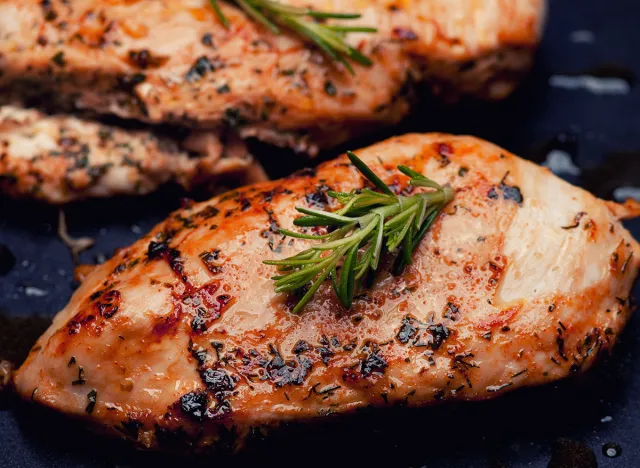
You knew this one had to show up on the list, right? Chicken breast has become such a popular choice among weightlifters that it's almost a cliché—but it genuinely is an excellent choice when you're working on building up lean muscle.
The reason why: In each 3-ounce serving, you'll get about 26 grams of high-quality protein. Since the American College of Sports Medicine recommends that people who lift weights on a consistent basis consume 1.2-1.7 grams of protein per kilogram of body weight (180-255 grams per day for a 150-pound person), a serving or two of chicken breast can help you reach your daily target.
Greek yogurt
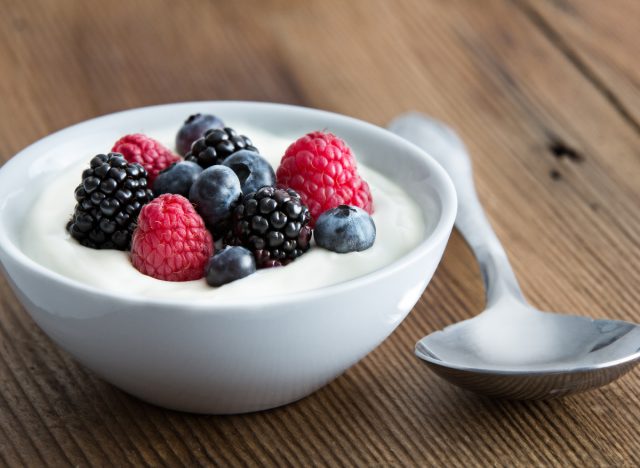
Pour it in a smoothie, slather it on pancakes, or use it as a sour cream substitute—any way you enjoy Greek yogurt, you'll reap its high-protein benefits. Due to the way it's strained, Greek yogurt retains significantly more protein than traditional yogurt. We're talking 17 grams per 6-ounce tub!
Don't discount the calcium in Greek yogurt, either. In addition to its benefits for bone health, calcium may help keep your muscles strong. A 2020 study found that having low calcium accelerated muscle loss in older adults—so adding more of this mineral could have the opposite, positive effect.
Tofu
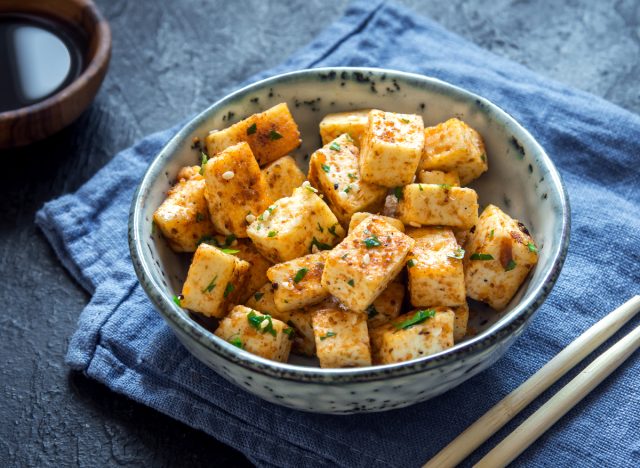
In recent years, vegan and vegetarian power lifters have busted any myths about soy foods failing to fuel muscle growth. Tofu offers a plant-based, high-protein alternative to meat. Each half-cup serving contains 10 grams of protein, and since tofu is simple to pair with grains like brown rice or quinoa, many soy-based meals rack up plenty of protein.
Salmon
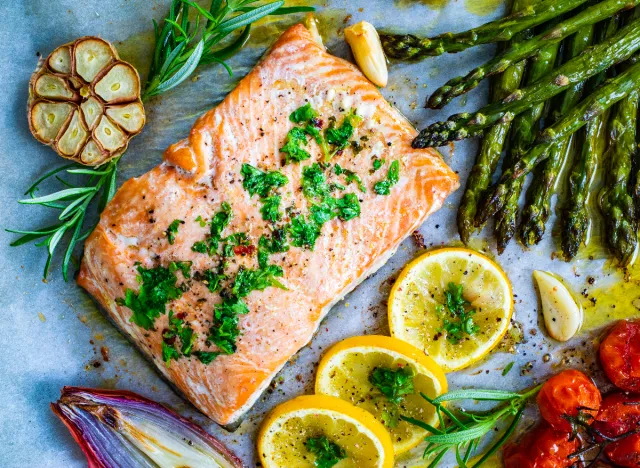
You probably know salmon has plenty of protein (a 3-ounce fillet has 17 grams), but did you know this fatty fish also contains creatine? Many weightlifters supplement their diets with creatine for its muscle-building effects because creatine can enhance muscle cells by pulling water into them. Of course, continue supplementing if you like, but know that foods like salmon can add to your daily creatine levels as well.
Eggs
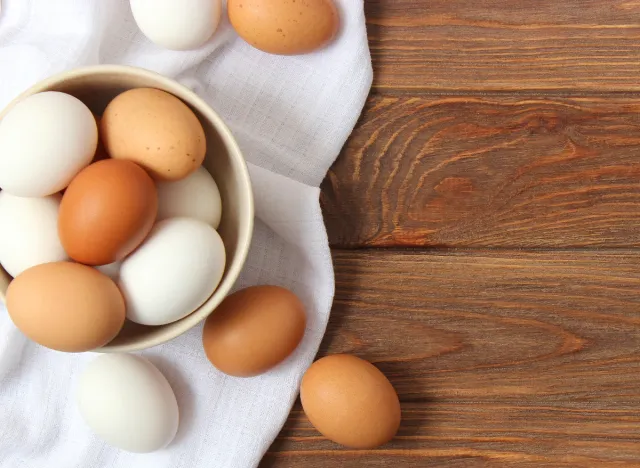
It's no wonder eggs have become a dietary staple for anyone looking to bulk up on lean muscle. (Is a weightlifting snack even complete without a hard-boiled egg?) Each little orb is a portable package of 6 grams of high-quality protein. Plus, eggs contain choline, an essential nutrient for building muscle.
Beans
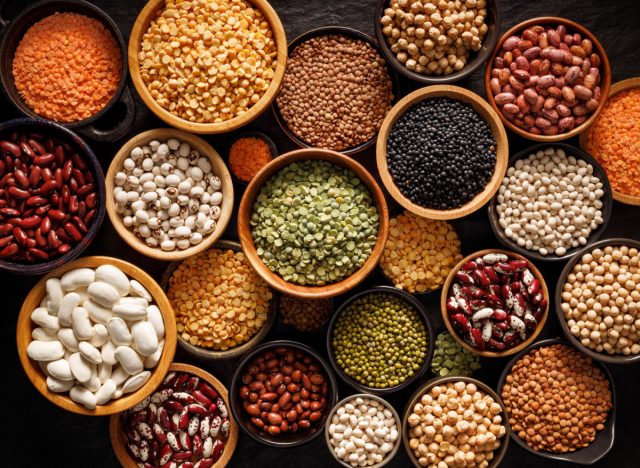
We'll grant that beans don't contain complete protein, the kind that provides all the essential amino acids that the body has to get from food. But more and more experts believe that, for muscle growth and general health, getting all nine essential amino acids isn't necessary at every meal. According to the Cleveland Clinic, for example, you don't need to eat foods with amino acids at every meal, but rather can strive for a balance of them throughout your day.
Beans are actually a top-notch option to support muscle building. Half a cup of cooked edamame contains 9 grams of protein, not to mention iron for transporting oxygen to your muscles. Other beans like black beans and kidney beans contain sizable amounts of protein, too, plus muscle-building iron, phosphorus, magnesium, and B vitamins.
Lean beef
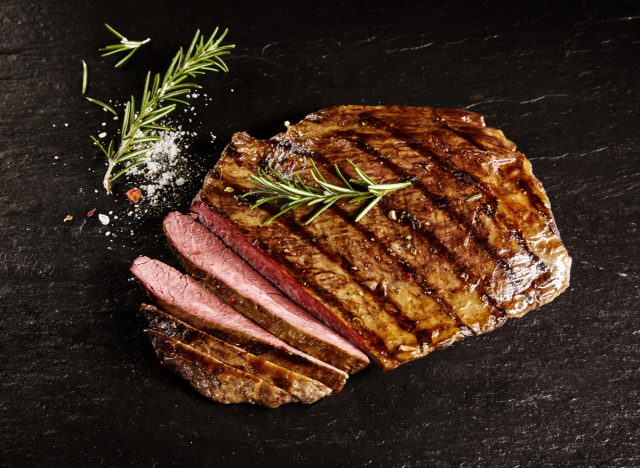
They don't call building muscle "beefing up" for nothing! Lean cuts of beef like flank steak, eye of round roast, and top sirloin pack on the protein, keeping fat to a minimum. A 3-ounce flank steak, for example, has 24 grams of protein. Besides the fact that it's a high-protein food, beef is also rich in muscle-building nutrients like zinc, selenium, and iron. One study on older adults found that beef intake was associated with more mid-arm muscle.
Turkey breast
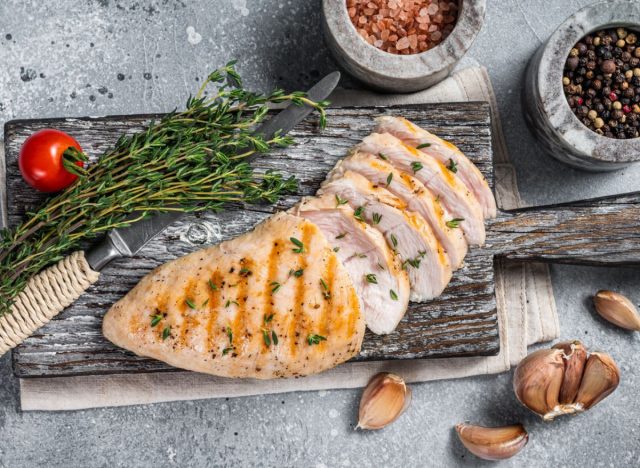
For another potent protein, turn to turkey. Turkey breast meat serves up plenty of protein (and even less fat than chicken breast). Each 3-ounce serving comes with 26 grams, and since turkey is endlessly versatile in recipes, it's easy to include it at breakfast, lunch, or dinner. Gobble, gobble!
Tuna
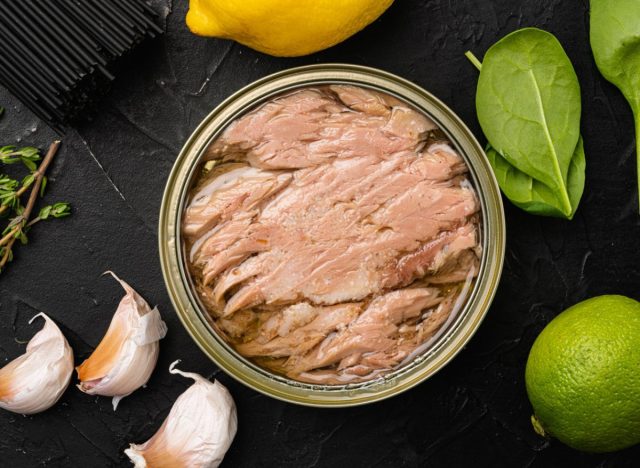
Canned tuna makes a handy, high-protein lunch or snack at 20 grams per 107-gram can. But for even more protein (and a more elegant presentation at dinnertime), you can opt for fresh tuna. A 3-ounce bluefin steak packs 25 grams of protein, and all those omega-3 fatty acids you'll get won't go to waste, either! Research shows that, especially in elderly people, more omega-3s can contribute to muscle mass gain.
- Source: https://fdc.nal.usda.gov/fdc-app.html#/food-details/171534/nutrients
- Source: https://www.acsm.org/docs/default-source/files-for-resource-library/protein-intake-for-optimal-muscle-maintenance.pdf
- Source: https://fdc.nal.usda.gov/fdc-app.html#/food-details/170894/nutrients
- Source: https://www.ncbi.nlm.nih.gov/pmc/articles/PMC7551872/
- Source: https://fdc.nal.usda.gov/fdc-app.html#/food-details/172476/nutrients
- Source: https://fdc.nal.usda.gov/fdc-app.html#/food-details/173688/nutrients
- Source: https://fdc.nal.usda.gov/fdc-app.html#/food-details/748967/nutrients
- Source: https://www.ncbi.nlm.nih.gov/pmc/articles/PMC7400816/
- Source: https://my.clevelandclinic.org/health/articles/22243-amino-acids
- Source: https://fdc.nal.usda.gov/fdc-app.html#/food-details/168411/nutrients
- Source: https://fdc.nal.usda.gov/fdc-app.html#/food-details/169435/nutrients
- Source: https://pubmed.ncbi.nlm.nih.gov/23131821/
- Source: https://fdc.nal.usda.gov/fdc-app.html#/food-details/171496/nutrients
- Source: https://fdc.nal.usda.gov/fdc-app.html#/food-details/334194/nutrients
- Source: https://fdc.nal.usda.gov/fdc-app.html#/food-details/173707/nutrients
- Source: https://pubmed.ncbi.nlm.nih.gov/33291698/









